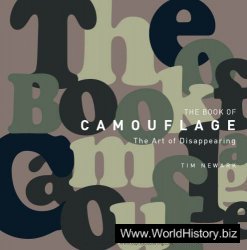Pope (1159-1181). Born around 1110 of Sienese origin, the cardinal and papal chancellor Roland took the name Alexander when he was elected pope by a majority of cardinals on 7 September 1159. A minority chose a rival who took the name Victor IV.
The support given to Victor and three successive imperialist popes by the Holy Roman Emperor Frederick I Bar-barossa brought about a schism in the papacy lasting until 1177. Alexander spent much of this time in exile, returning to Rome only in 1188. As pope, Alexander granted numerous privileges to the military orders and responded to appeals from Outremer for aid against the expansionist Nur al-Din and Saladin by attempting to organize a crusade from 1165 onward. Although Henry II of England and Louis VII of France declared a crusade tax in 1166, their rivalry and the papal schism effectively sabotaged efforts to organize a

Allegorical picture of Pope Alexander III treading on the neck of Emperor Frederick I Barbarossa. (Hulton-Deutsch Collection/Corbis)
Grand general passage, moving Alexander and King Amal-ric of Jerusalem to win the Byzantine emperor Manuel I Komnenos as an ally, while multiple smaller expeditions departed in aid of the Holy Land. Papal negotiations with Manuel were marked by proposals for the reunion of the Greek and Latin churches in return for Manuel replacing Frederick Barbarossa as Holy Roman Emperor.
Although Alexander imposed the crusade vow upon Henry II of England as penance for his complicity in the murder of Thomas Becket, archbishop of Canterbury (1170), a revolt of Henry’s sons forestalled the king’s departure. After the resolution of the conflict with Frederick Barbarossa (1177), Alexander extracted renewed crusading pledges from the kings of France and England and summoned the Third Lateran Council (1179), which was attended by representatives from Outremer and the Greek Orthodox Church. Alexander had already sent a delegation including Henry of Albano, abbot of Clairvaux, to preach against heresy in the Toulouse region. The delegation’s reports led the council to urge bishops to excommunicate Cathar heretics and routiers (mercenaries) and to grant papal protection and episcopal indulgences to those who fought them. Promoted to cardinal and papal legate, Henry of Albano exploited this new mandate to lead a military expedition to southern France, foreshadowing Innocent III’s formal extension of the crusade to this region.
-Jessalynn Bird
Bibliography
Kienzle, Beverly Mayne. Cistercians, Heresy, and Crusade in Occitania, 1145-1229 (Woodbridge, UK: Boydell, 2001).
Phillips, Jonathan, Defenders of the Holy Land: Relations between the Latin East and the West, 1119-1187 (Oxford: Clarendon, 1996).
Richard, Jean, The Crusades, c. 1071-c. 1291 (Cambridge: Cambridge University Press, 1999).
Rowe, John G., “Alexander III and the Jerusalem Crusade: An Overview of Problems and Failures,” in Crusaders and Muslims in Twelfth-Century Syria, ed. Maya Shatzmiller (Leiden: Brill, 1993), pp. 112-132.
Tanner, Norman P., Decrees of the Ecumenical Councils, vol. 1: Nicaea I to Lateran V (Washington, DC: Georgetown University Press, 1990).




 World History
World History









